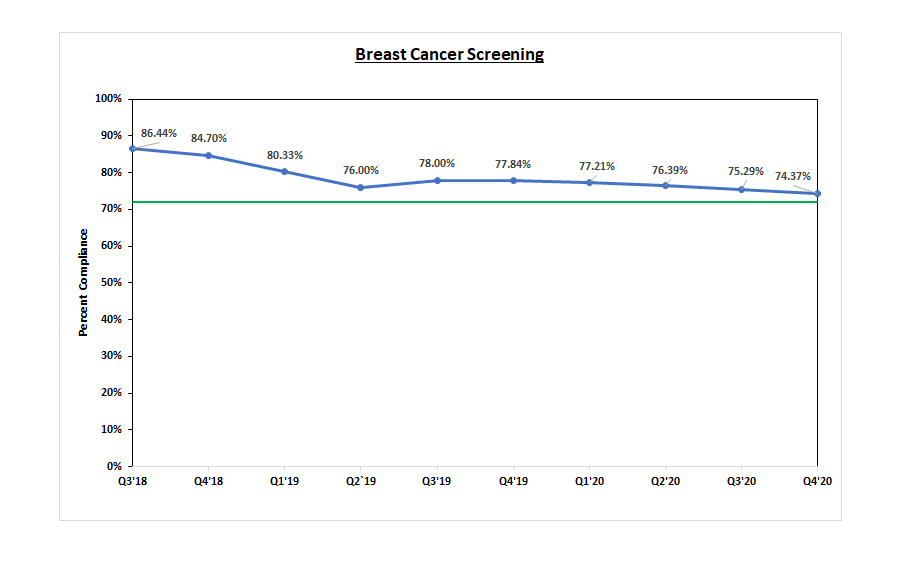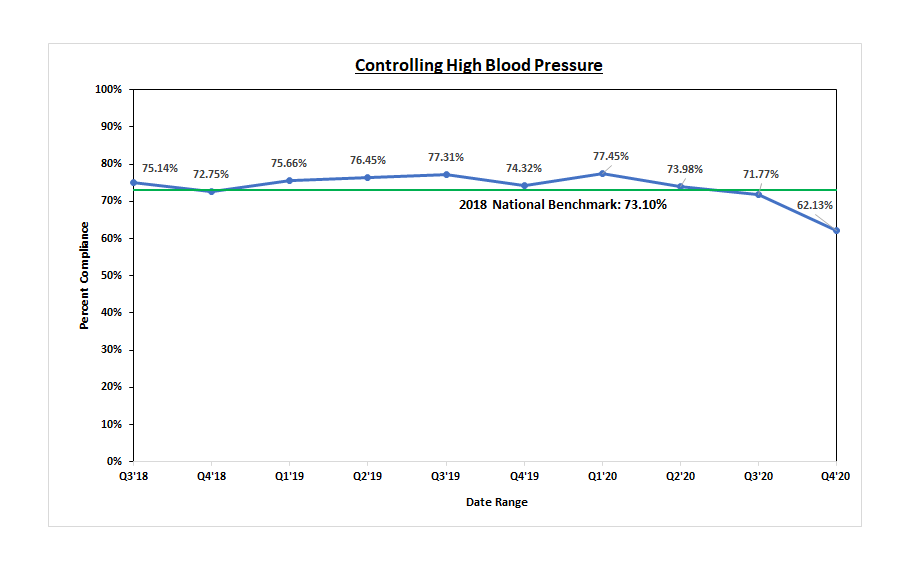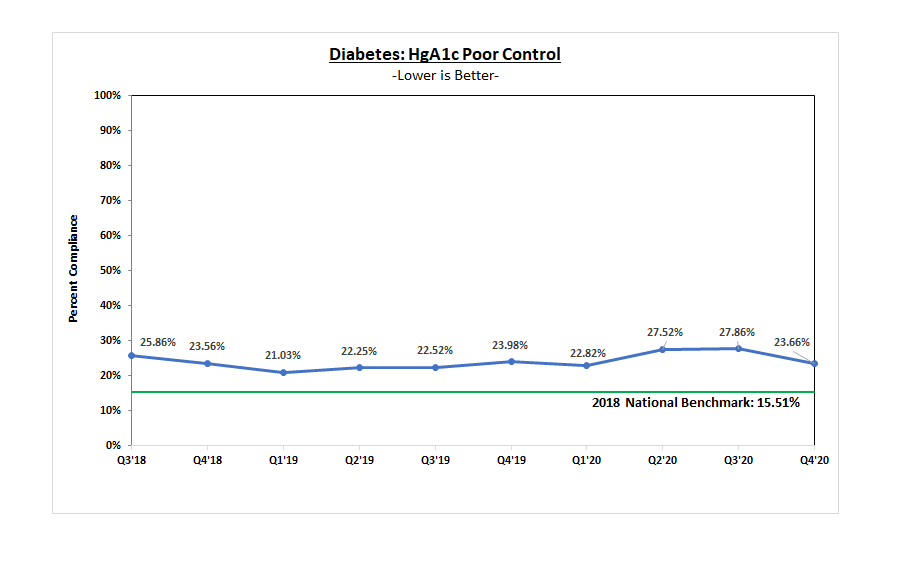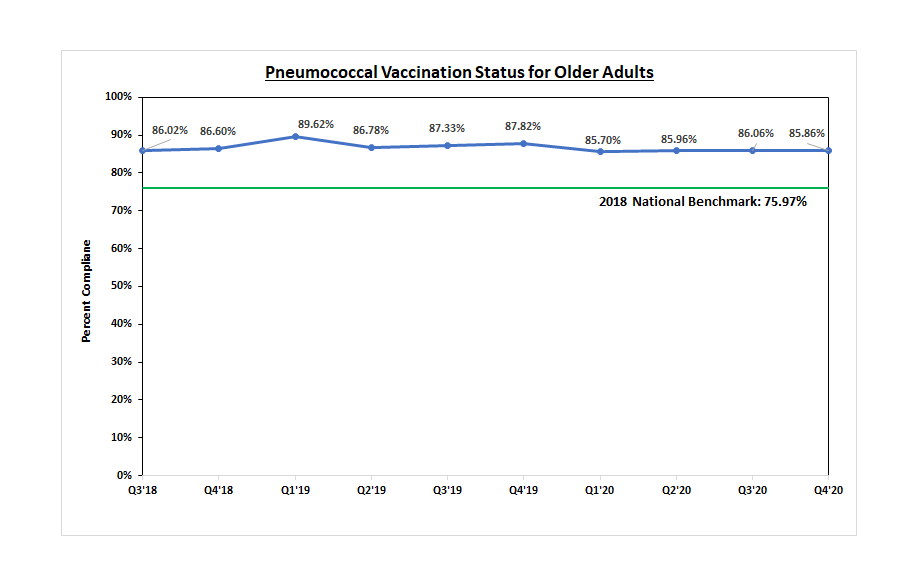Quality Measures
Founded in 1837, MetroHealth provided more than 1.4 million patient visits in its hospital and health centers in 2018. It is an academic medical center committed to teaching and research; each of its active staff physicians holds a faculty appointment at Case Western Reserve University School of Medicine. MetroHealth has earned Magnet status, placing it in the top six percent of all hospitals nationwide for nursing excellence. It is home to Cuyahoga County’s most experienced Level 1 Adult Trauma Center, it is a verified Level II Pediatric Trauma Center, and it is Ohio's only adult and pediatric burn center.
Expanding Access
The MetroHealth System is committed to delivering high-quality care while providing easy access to patients throughout Cuyahoga County and beyond. Our 7,700 employees serve patients at our main campus, 20 health centers and 40 additional sites throughout Cuyahoga County, and 97 percent of county residents live within a 10-minute drive of one of our facilities.
Quality
At MetroHealth, our goal is to provide the highest-quality care to every patient; it is the foundation of everything we do. As a Medicare Accountable Care Organization, MetroHealth’s quality of care is assessed through more than 30 Quality Performance Measures. These include important metrics such as how well we communicate with patients, screen for breast cancer, reduce hospital readmissions, control high blood pressure and much more. We are required to carefully measure our performance and report our findings to the government.
As a verified trauma center since 1992, MetroHealth is committed to delivering the highest level of quality trauma care. The hospital actively participates in the American College of Surgeons (ACS) Trauma Quality Improvement Program (TQIP) to further elevate the care that we bring to you. The ACS sets standards to improve care for our trauma patients by defining structure and processes of care and ensuring adherence to performance improvement and patient safety. Furthermore, TQIP utilizes risk-adjusted benchmarking to compare our trauma patient outcomes with similar trauma programs across the nation, alerts us to best practices, and provides continued education and training to our trauma program staff. We received our most recent TQIP report this past month and are sharing it with the public at this time.
MetroHealth has long exceeded the national benchmark for breast cancer screening, thanks to a collaborative effort among multiple departments within The MetroHealth System. This rate measures the percentage of women between the ages of 50 and 74 who have had a mammogram in the past two years. 
In September of 2017, we began offering a new method for colorectal cancer screening, the Fecal Immunochemical Test or “FIT”. We now offer our patients the choice of FIT or colonoscopies as options to prevent or detect cancer. Beginning last year, our rate of screening for adults between the ages of 50 and 75 has increased each month, and we now exceed the national benchmark.
This graph shows the percentage of our patients with a diagnosis of hypertension who have a blood pressure less than 140/90. For the past several years, MetroHealth has adopted best practices in team-based care to help patients better control their high blood pressure, and we now proudly exceed the national benchmark. 
This measure shows the percentage of patients with diabetes who either have high blood sugar levels or have not received recommended testing in the past year. We have made great strides in improving these results, but still have an opportunity to help more patients with diabetes better manage their blood sugars with consistent testing, healthy eating, exercise, and, in many cases, medications.
This graph shows the percentage of patients 65 years of age and older who have received the pneumococcal vaccine. In 2018, we reached an all-time high rate of vaccinating more than 80 percent of patients, protecting them from the potentially serious complications of pneumonia.

Bringing Education on Quality to Our Team
Our focus on continuous quality improvement is a true team effort. That is why MetroHealth is putting on a series of classes for an interdisciplinary group of staff. The classes – a hybrid of in-person and online coursework – are based on a curriculum from the Institute for Healthcare Improvement’s Open School. Organized by staff from MetroHealth’s Quality Institute, sessions are co-led by a nurse and a physician. The goal is to help staff integrate quality improvement techniques into their everyday work, and to create a common vocabulary so that departments strive to evaluate and improve the care we provide on an ongoing basis.
TeamSTEPPS Regional Training Center
TeamSTEPPS is an evidence-based teamwork system aimed at optimizing patient outcomes by improving communication and teamwork skills among health care professionals.
The MetroHealth System is proud to be a TeamSTEPPS Regional Training Center. We offer training to create a national network of master trainers, who will in turn offer TeamSTEPPS training to frontline providers in hospitals and other health care settings throughout the country.
TeamSTEPPS provides higher quality, safer patient care by:
- Producing highly effective medical teams that optimize the use of information, people, and resources to achieve the best clinical outcomes for patients.
- Increasing team awareness and clarifying team roles and responsibilities.
- Resolving conflicts and improving information sharing.
- Eliminating barriers to quality and safety.
MetroHealth has implemented TeamSTEPPS in our Emergency Department, Trauma Center, Surgical Intensive Care Units, Burn Care Center, operating rooms, Post Anesthesia Care Unit, Labor and Delivery Unit, Neonatal Intensive Care Unit, Postpartum Unit and one of our health centers.
TQIP Risk-Adjusted Mortality (by cohort)
This report is based on trauma patient admission to the MetroHealth System results from 1st quarter 2018 until 3rd quarter 2019 that met inclusion criteria for the American College of Surgeons Trauma Quality Improvement Program.
The following table provides our odds ratios (ORs) for death for trauma patients treated at The MetroHealth System over time. An OR between zero and one suggests a lower event rate (better performance) than average. The data are risk-adjusted to accommodate for differences in patient characteristics and injury severity across trauma centers.
Quarter 1 2021 through Quarter 1 2022
| Cohort | Odds Ratio |
| All Patients | 0.80 |
| Blunt Multisystem | 0.80 |
| Penetrating | 1.05 |
| Shock | 0.89 |
| Severe TBI | 0.94 |
| Elderly | 0.92 |
| Elderly Blunt Multisystem | 0.94 |
| Isolated Hip FX | 0.82 |